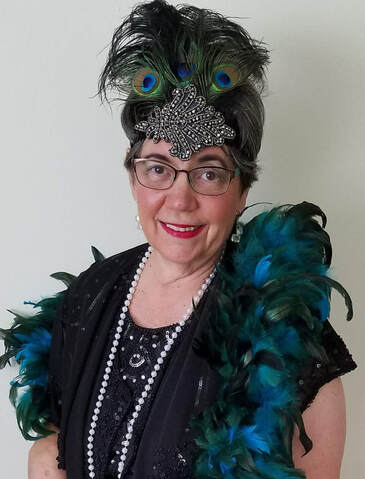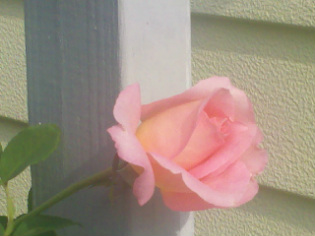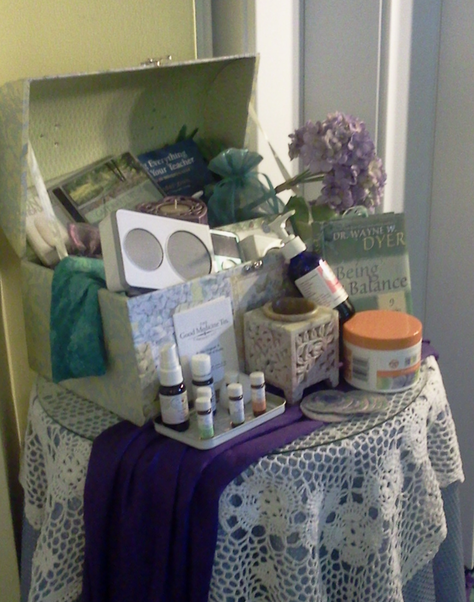|
10/6/2021 Music is a miraculous giftMUSIC IS A MIRACLE FOR ALZHEIMER'S PATIENTS (AND THEIR CAREGIVERS)
In my experience as a singer working specifically with residents in memory care, I have repeatedly seen an almost miraculous "awakening" that occurs when carefully chosen music is sung live with the people who have memory deficits from Alzheimer's or other cognitive decline. It is still, after witnessing it time after time for the past 7+ years, so incredibly moving. I have seen people who are wheelchair-bound and basically unresponsive, lift their head up, open their eyes and begin singing with me. Often staff and family also react to this "awakening" as miraculous, when they see the person still inside and able to respond, sometimes even when they don't know their own name or recognize family anymore. It's a gift of connection that is so precious and amazing! This very powerful aspect of music triggers memories stored in a different part of the brain, usually the last affected. And when it can be activated, the positive effects last for a while, bringing joy to both the individual and their caregiver/family. There are also some excellent programs (MusicandMemory.org) which use the same concept but with technology instead of a live singer. That also has merit and proven benefit to the listener, however, in seeing responses to both live and recorded music, the hands-down best is the live performance because of the vital human connection and interaction with the singer. And, of course, a singer can custom design programs for specific groups or individuals and be responsive to changing them upon getting feedback as to which songs are best received. There is also the aspect of giving eye contact, a warm smile, a touch on the arm, and the energy of the song. When you take into account that most people living in memory care have a full 95% of their time idle, aside from activities of daily living, having a musical "intervention" be it live or through technology can increase connection, quality of life and joy for those living with Alzheimer's Disease or other dementia. For those caring for a loved one at home, music can provide a welcome stimulation and connection via watching favorite musicals on video or streamed, and through the use of a device which can create a custom playlist, such as iTunes or YouTube Music, Amazon Music, etc. The creation of a highly personalized list of favorite songs is essential. Finding just the ones that produce the greatest "happiness effect" and bring pleasant memories back is the goal. Also, if you can add stimulation for other senses, such as photos for visual memory stimulation, and objects for tactile interest -- jewelry, memento from a trip, any other object that has happy memories attached, the effect is multiplied. I highly encourage caregivers, both family and professional, to explore the amazing possibilities and power of music and memory! 7/23/2014 Music brings you "Alive Inside" I have written much on this site about the power of music to unlock the memories of those with dementia, about my own experiences using live music with Alzheimer's patients and how music can improve the quality of life for the elderly (and their caregivers!). Refer to the iPod Project and Music and Memory posts on this site. Now, the long-awaited release of the documentary film about this exciting subject is happening across the country. I hope you have the opportunity to see the film in theaters, but if not, it will be available in October on DVD. If you are a caregiver for someone who might benefit from the inclusion of personalized music, please visit the website www.musicandmemory.org for information about setting up an iPod or other MP3 player with music for your care recipient. You could make an incredible difference in their life and your own with this simple action. Take a look at the video trailer below and consider how good it would feel to bring one you love "alive inside" again with music! Dr. Bill Thomas, creator of the Eden Alternative and ChangingAging.org website, blogs about his part in the Alive Inside documentary. You'll find his article in the DailyBeast Op-Ed: Treat Dementia With Music, Not Drugs is excellent. Here is the trailer for the Alive Inside documentary (winner of the Audience Award at 2014 Sundance Festival): or visit the website for times and dates of showings at www.aliveinside.us 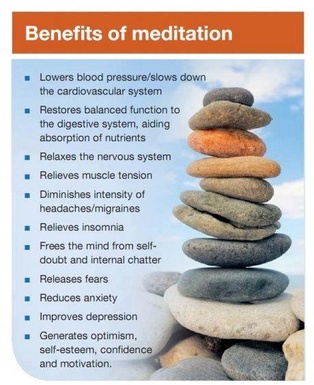 I have written often of the benefits of meditation, particularly when combined with music as a guided meditation experience. Now there is increasing evidence from mainstream medical research of what has been understood for thousands of years by wise teachers of many traditions: meditation is great for people! The truly excellent thing about meditation is that anyone can do it, pretty much anywhere. It is easy, free (or very inexpensive if you choose to buy CDs or download guided versions), is proven as effective as pharmaceutical aids in reducing depression and stress, and has no side effects other than an increased sense of well-being and peacefulness. Click here to see the research done at Johns Hopkins investigating meditation as anti-depressant. What's not to love about that? The Mayo Clinic also published a newsletter article titled "Meditation: A simple, fast way to reduce stress" which gives an great overview of the subject . Various forms of meditation have been taught, mostly in eastern cultures, and the practice has been growing by leaps and bounds in the west over the past thirty years or so. There have been a number of pioneeers in bringing the practice of mindfulness-based stress reduction (MSBR) to the west, including Jon Kabat-Zinn who founded the Stress Reduction Clinic and Center for Mindfulness in Medicine, Health Care, and Society at the University of Massachusetts Medical School. His clinic was featured on the public television series Healing and the Mind with Bill Moyers in 1993. Meditation has such incredible benefits that I believe everyone can find some help by practicing it. In my own experience as a caregiver, meditation and music, combined with fervent and frequent prayer, saved my sanity when it was hanging by a thread. I find it compelling that the list of benefits meditation offers so exactly corresponds to symptoms many (or most) caregivers experience. The only mystery to me is why more caregivers don't use this incredible tool for balance and strength. Which is why I am making it my mission to get this information out to those who need it through this website & blog, by writing, speaking, teaching, and otherwise promoting it. How often is there a perfect solution to so many of our everyday stresses just waiting for us to sit down and get quiet long enough to find its gifts? If you'd like to explore the ideas and resources for meditation, please visit my Meditation and Music page on this site and also take a look at the ideas for Self-care and Caregiver Resource Store. I will also be publishing a book which further details resources and tools for caregivers: Sanity Savers for Caregivers at the End of Their Rope. You can add your name for an announcement of publication, which is targeted for March 2014. If you would like to read a chapter from the book about the uses of music and meditation, click here. I encourage you to explore the idea of various forms of meditation and find what appeals to you personally. In my 17 years of caregiving, music and meditation were the brightest jewels in the caregiver crown. Try it out. You have nothing to lose and so very much to gain! 7/29/2013 Beautiful Compensations of Caring"It is one of the most beautiful compensations of life, that no man can sincerely try to help another without helping himself." 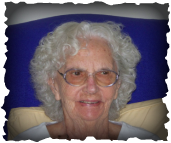 Throughout my life, I have come to know a deep spiritual truth: We are all connected. According to Chief Seattle, "Humankind has not woven the web of life. We are but one thread within it. Whatever we do to the web, we do to ourselves. All things are bound together, All things connect". To me, this connection called the web of life means that every action we take (or avoid taking) has an impact somewhere, either within our own lives, on other life forms, or upon our environment. This idea has been reiterated by many wise poets, writers, philosophers and theologians, so it is not new. However, I think it applies even more strongly to the relationship of caregiver to care receiver. I'm speaking here of the quality of our caregiving experience, from both sides of the equation. I've written in this blog of some of the negative consequences caregiving can have, in terms of the caregiver's health, happiness and sense of balance in life. All true. But I want to give some time also to the beautiful compensations, those incredibly precious moments of connection at the soul level, that can be a part of caregiving as well. Every person and situation is as unique as a fingerprint or snowflake, so generalizing is risky. But I think this is a crucial part of creating a more serene, beneficial experience, so I am willing to go out on this limb. In caring for my mother, I learned (sometimes the hard way!) that we were incredibly connected -- whether that was judged a good or bad thing was up to me and the perspective I chose. She responded to me on an almost psychic level at times, picking up on emotions and reactions of which I might be totally unaware. She often understood that something was upsetting me, even before I knew it! Though she could not always ferret out the correct reasons, she still related to me from this knowing. I soon realized I could not "fool" her into believing everything was fine if it wasn't. So, I had to clear my own mind and heart before approaching her. I could not hide behind a pretense or falseness. Mom spotted that immediately! She was like a dolphin whose echo-location scanned below the surface, all the way through my innermost self, and saw truth. It reminded me of times as a child when I believed Mom could tell if I was fibbing by looking into my eyes. Perhaps she could -- a mother's own type of radar or a truth-seeking missile. There were several activities we did to nurture and connect us: music was a powerful device for this. We often sang together, watched musicals on DVD that were her favorites, and listened to hymns or songs by Nat King Cole, Bing Crosby, and other "crooners" from Mom's era. I wish that I'd known about the iPod Project (www.musicandmemory.org and on this site click here) in time to use that with my Mom. But, alas, I learned of it too late. Another connection was found through flowers, specifically roses -- that lovely flower was Mom's talisman, since she grew a beautiful rose garden which she shared with her friends to uplift and bless them all her life, so it was perfect for reminiscing. And, lastly, perhaps the most potent of all: simple loving touch. I used gentle, soothing touch with Mom every day -- putting lotion on her skin, gently rubbing her back at bedtime, using aromatherapy oils on her hands and arms, hugging her several times a day, touching her arm or hand as we walked, reaching over to pat her knee as we watched TV or in the car. I used touch along with giving her reassuring words, and loving eye contact. It was this that most often sparked a spontaneous "I love you", or "You're a little sweetheart" (her favorite term of endearment). Now, in the interest of being completely candid, I must report that I am not a saint. There were days when exhaustion, lack of sleep, worries, distractions, stress or any number of other things got in the way of my being the best caregiver I could be. There were days I didn't much like myself for being tired, short-tempered, upset. I've had to figure out how to forgive myself for not being perfect, for not always knowing how to approach this huge job of being completely responsible for another life. Most days I can do that. I'm still working on it. I wanted to share this, from my heart, because I know that the one thing caregivers often find in short supply is hope. Hope for a loving positive experience in caring for one they love. My advice is to create that hope and joy one moment at a time. Make this moment count. Use all your creativity and passion to connect through all the senses -- sound, touch, smell, sight and taste. Be present as a healing, loving being right now. Let the next moments and days take care of themselves as much as you can. And find the peace and grace of those beautiful compensations of caring -- one moment at a time. 3/21/2013 Caregiver's Self-Care Comfort Kit"You give but little when you give of your possessions. It is when you give of yourself that you truly give." ~Kahlil Gibran 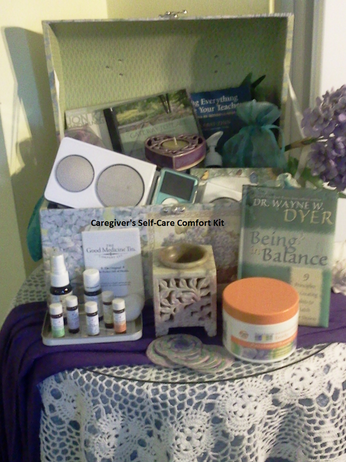 Caregiver's Self-Care Comfort Kit Caregivers are, by their very definition giving people. They do give of themselves, sometimes for many years, faithfully supporting their care-receiver. It turns out that most caregiving roles are more a marathon than a short sprint, so one has to be prepared with the strength and stamina to continue. Quite often caregivers find themselves battling their own chronic stress, burnout, depression, health problems, relationship challenges, and other negatives to quality of life. It is, therefore, of the utmost importance to find ways to reduce the stress, relax, disengage for a time of respite and renewal. I've spoken of this many times in the past year, even giving recommendations to create a Caregiver Comfort Drawer for those emergencies when you need a little extra TLC. However, in the previous posts, I didn't include a photo of the kinds of things I was recommending, and a photo is, as the saying goes, worth a thousand words. So, today, I am giving you a glimpse into my own self-care comfort kit, a photo tour, and a list of the types of things I included that worked for me. I realized, especially toward the end of my mother's life, that this comfort kit needed to be mobile, rather than in a drawer at home. That way, my visits to Mom could include pampering for us both. I hope you will find the suggestions helpful and that some of them will resonate with you. Please do find something to help you deal with the stress levels. It is not being self-indulgent to do so -- it may save your sanity, and perhaps even your very life! Here is a list of items my comfort kit contains, by category: Aromatherapy: Oil Lady Aromatherapy Good Medicine Tin, which includes 5 essential oils, pure organic jojoba to blend them, a lavender mist bottle, and instructions on how to use them in various ways, such as in a diffuser, in the shower/bath, in self-massage, hand massage, etc. These are simply wonderful in all kinds of situations, to calm & balance oneself and reduce stress. I give them my highest recommendation. They also sell a Sweet Sleep Kit with the lavender mist, and lavender oil, along with natural tranquilizer oil, which is great for those nights when sleep eludes you or your care-receiver. I also have a diffuser in my kit. Mine uses tea light candles, so must be attended at all times, but there are electric ones as well which can be set to low temperatures. In addition to the above, I also included Stimulator Oil and Balancer Oil blends from Oil Lady. I love them for myself and my Mom. Aura Cacia makes two great body creams that have become favorites -- Lavender and Patchouli/Orange are now my standards for moisturizing and make a pleasant bedtime ritual. And, I use some of their bath products when I want a special, relaxing treat. For more aromatherapy suggestions, visit my page: Aromatherapy Books & Music: For relaxation, I use a guided meditation called Gateway to Peace by Max Highstein. It is soothing music and words which takes you on a 12 minute journey of renewal. Great stress reducer! I also use Jon Kabat-Zinn's CD, Mindfulness for Beginners to learn mindfulness meditation. And, as a companion to that, the book Everything is Your Teacher, based on Kabat-Zinn's book, Full Catastrophe Living, offers great insights. I love Wayne Dyer's book Being in Balance which is quite helpful, and can be read in small increments if time is in short supply. There are many other books and recordings, and I find it most functional to put the music and meditations on an iPod for easy use and storage of a bunch of favorites. I bought an iHome speaker dock for it, which is rechargeable and has its own case for easy portability. That way, others, such as your care-receiver, can listen to, if you wish. I cannot emphasize to you enough the amazing power that music has to affect your mood and sense of well-being. It is a wonderful tool, for both you and your loved one, so please do make use of it in the ways you find most healing and helpful. Other items: A small journal/Gratitude journal Stationary and envelopes Colored pens, pencils, sketch pad Healthy snacks and not-so-healthy emergency chocolate (dark, of course, so I don't feel quite so guilty) You can get very creative with your comfort kit -- after all it is for YOU, so whatever speaks to your heart and soothes your soul is perfectly valid. I also advise using humor wherever possible and in whatever form you can find. It really will help keep life on the lighter side to have some laughter) |
About Karen
Karen is a compassionate, enthusiastic student of life, who cared for her mother for 17 years. She brings her insights, compassion, experience and desire to share knowledge and healing to this ongoing conversation with others on the caregiving path. If you are caring for a parent, spouse, friend or other loved one this site offers sanity-saving tips, open-hearted self-care ideas, and an open forum for discussion, connection and sharing resources for the journey. Archives
October 2021
CategoriesAll Acceptance Aging Together Alan Cohen Alive Inside Movie Alzheimer's Alzheimer's Prevention A Mind Of Your Own Anxiety Aromatherapy Audio Therapy For PTSD Austin Air Hepa Filter Autism Back Care Video Beginner's Mind Being Present Blessing For Caregivers Books Brain Insulin Butterfly Story Calm Calm.com App Care For Veterans Caregiver Advocate Caregiver Coalition Caregiver Comfort Kit Caregiver Guilt Caregiver Retreat Caregiver's Serenity Prayer Caregiver Stress Caregiver Support Care Giving Caregiving Vulnerability Care In Hospital Caterpillar Into Butterflies Chamomile Tea Cindy Laverty Comedian Computers & Exercise Crisis Dan Cohen Deepak Chopra Delirium Depression Diabetes Disaster Preparedness Distractions Dr. Dharma Singh Khalsa Dr. Oliver Sacks Eden Alternative Eldershire Elizabeth Dole Foundation Emergency Planning Emergency Preparation Emerson End Of Caregiving Enough Already Escapism Essential Oils Food Safety Forgiveness Funny Stories Gaiam.com Gail Sheehy Gift Of Alzheimer Gift Of Healing Presence GMO Food Green House Project Gregory Fricchione Md Grief Guilt Happy Light Healing Holding Hands Home As Sanctuary Hope Hospital Caregiving Hospital Stay Humor Inspirational Reading Ipods For Nursing Homes Isolation Jacksonville James E. Miller John Denver Johns Hopkins Study John T. McFadden Jon Kabat-Zinn Kelly Brogan Kirtan Kriya Meditation Lao Tzu Laugh Laughter Lavender Loneliness Loss Of Purpose Love Love In The Nursing Home Maya Angelou Mayo Clinic Mayo Clinic Alzheimer's Blog MD Meditation Meditation Garden Melatonin Memory Memory Cafe Military Caregiver Mindfulness Meditation Mr. Bean Music Music & Alzheimer Music And Memory Neurological Research Noise Pollution Operation Family Caregiver Opportunity Overnight Respite Care Pandemic Passages In Caregiving Patience Paul Coelho Peace Post-traumatic Stress Disorder Power Of Love Prayer PTSD Quality Of Sleep Radical Contentment Relaxation Releasing Problems Renewal Research Respite Rewind Rodney Yee Rosalynn Carter Rosalynn Carter Institute For Caregiving Rowan Atkinson Sanctuary Sanity Self Care Serenity Silence Sleep Slowing Time Solutions Soothing Music Stress Stress Relief Sun Sunshine Support For Caregivers Tai Chi Thanksgiving The Care Company The Kiss Time Traumatic Brain Injury Travel With Alzheimer's Person Treat VA Caregivers Valentine's Day Verilux Veteran Farms Veterans Veteran Suicide Vitamin D Wayne W. Dyer Wellness Wendell Berry White Noise William H. Thomas Worry Yoga Yoga Video |
